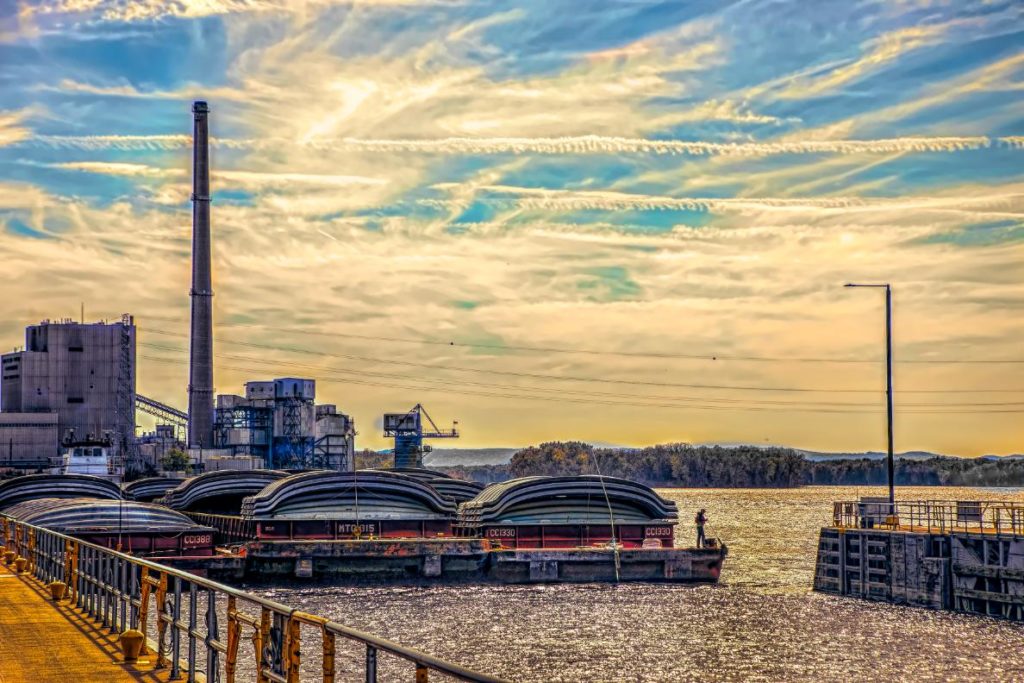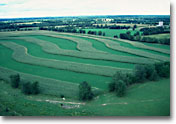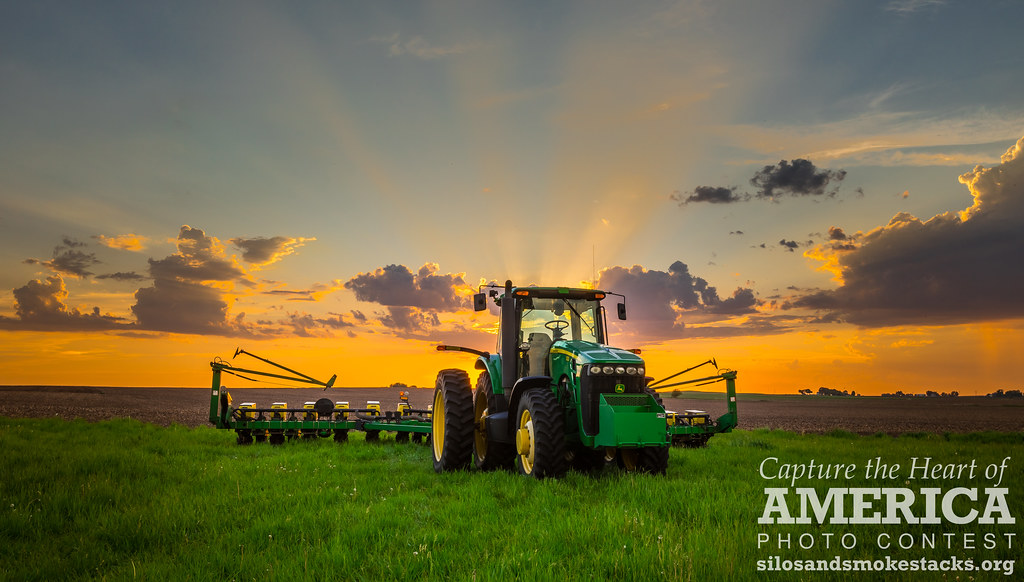Read the story We're Feeding the World. It tells the wonderful story of ordinary people whose accomplishments were extraordinary.
The story of Iowa agriculture is about connections, connections between yesterday and today, between today and tomorrow. As one generation nurtured the next, Iowa agriculture was transformed from the hard labor of pioneer farming to an international industry. Today Iowa feeds the world with farm products shipped to every continent of the world.
The story of Iowa agriculture is also about common individuals. It is about a young woman named Etta Budd who nurtured the work of famous scientist George Washington Carver. It is about George Washington Carver befriending Henry A. Wallace. It is about how the work of Henry A. Wallace led Norman E. Borlaug to become a world famous agriculturist.

As important Iowans, Henry Wallace and Norman Borlaug were leaders who not only made a difference for Iowans but for the world as well. They helped to develop agricultural practices that changed farming in the 20th century.
Another Iowa-born leader, Aldo Leopold, also helped to change agriculture in the 20th century but in a different way. He wanted to find a balance between using the land and preserving the land.
Aldo Leopold was born in Burlington, Iowa, on January 11, 1887. As a child he developed a keen interest in the natural world. He spent countless hours on adventures in the woods, prairies, and Mississippi backwaters near Burlington.
As an adult, he got a degree in forestry from Yale University and went on to become the founding father of wildlife ecology. He wrote many books about the value of preserving the land.
| "There are idle spots on every farm, and every highway is bordered by an idle strip as long as it is; keep cow, plow, and mower out of these idle spots, and the full native flora, plus dozens of interesting stowaways from foreign parts, could be part of the normal environment of every citizen." ~Aldo Leopold From A Sand County Almanac, and Sketches Here and There, 1948, Oxford University Press, New York, 1987, pp. 47-48. |

He wanted to preserve nature so that agriculture and nature could work together. He devoted his life to planting seeds of thought about how farming should be productive but not interfere with nature.
The Aldo Leopold Nature Center at Monona, Wisconsin works to teach people about respecting the land. Iowa State University is home to The Leopold Center for Sustainable Agriculture. It was created in 1987 to reach three goals:
Aldo Leopold died in 1948. But through these centers, he is still helping to preserve nature and conserve natural resources.
Iowans like Henry Wallace, Norman Borlaug and Aldo Leopold worked to make the world a better place to live for those that would follow them. So too, Iowans today are planning with the future in mind.
The Iowa 2010 Project gives all citizens the opportunity to be involved in the creation of a vision of Iowa for the 21st century. Another forward-looking project, Vision 2020, seeks to address the following challenges for the future of Iowa as a leader in food production:

Photos used by permission from the USDA Online Photography Center.

Copyright © 2022 CampSilos | All Rights Reserved
National Standards | Silos & Smokestacks | Credits | Awards
Crafted by IFC Studios, a midwest Branding Agency.